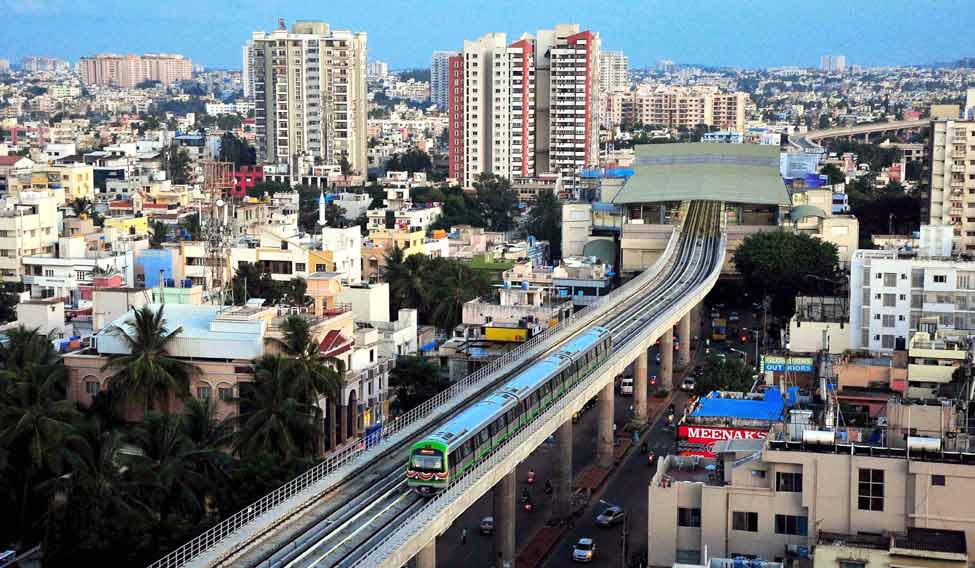With Delhi experiencing prolonged period of smog and the capital's airport remaining inaccessible for many hours during these days, the idea of a second national capital in south India has once again come alive. The Karnataka government has asked the Union government to make Bengaluru the second capital of India. In a letter to Prime Minister Narendra Modi on January 5, the Karnataka Minister for Large and Medium Industries R.V. Deshpande said that “India needs a second capital urgently” for deeper integration of south India into the scheme of overall development. Asserting that Bengaluru is ideally suited to become the second capital, the Congress minister said the decision would give "voice to the aspirations of millions of south Indians to feel that they are part of the national mainstream".
Emphasising Bengaluru's reputation as the most cosmopolitan city in the country, the minister wrote, “It [Bengaluru] houses people with many different languages and is probably the only city in the country where you can manage by knowing any one of the Indian languages.”
Deshpande contended that Bengaluru is free from natural disasters like oceanic tidal waves, hurricane, flooding, earthquakes and extreme weather conditions. “It is also safe from attack by external forces, as it is not close to the physical borders of the country,” the minister wrote.
Establishing a second capital in Bengaluru would help create newer opportunities in trade, cultural exchange and scientific and industrial innovation, he said.
As a preliminary step, the minister proposed to hold the winter session of Parliament in the garden city, which has a gentle climate all round the year. Arguing a "distant administrative system" does not do justice to the "rich and complex history of development and culture" of south India, the minister demanded setting up of a Supreme Court bench and the Union Public Service Commission office in Bengaluru.
Two many?
To many nations, the concept of multiple capitals is not anathema. There are already a dozen countries with two capitals. South Africa holds the distinction having three capitals—Pretoria, the headquarter of the executive, Cape Town, the legislative capital and Bloemfontein, the judicial capital.
Among the nations, Sri Lanka, Malaysia and Yemen have two capitals. Though Israel's official capital is Jerusalem, the embassies are based in Tel Aviv as countries consider Jerusalem a disputed region.
Nauru, the second smallest country after Vatican, is the only free nation without a specific capital city.
One is not enough
The demand for a second capital for India is as old as the days of Independence.
B.R. Ambedkar, who known as the chief architect of the Indian Constitution, had suggested establishing a second capital to remove tension between the north and the south. “Delhi is most inconvenient for people from the South because of distance as well as extreme cold and hot weather,” he wrote. “Delhi is a vulnerable place, within bombing distance from neighbouring countries,” Ambedkar said. His choice, however, was Hyderabad, since it was accessible to people from any part of the country.
In order to avoid complaints of inaccessibility, Union governments have consistently given special importance to trains to Delhi from all states.
But the rise in pollution level, traffic problems and extreme weather conditions in the capital have revived the call for a second national capital.
Karnataka's aspirations to make Bengaluru the second national capital became stronger with Hyderabad losing its prominence post the bifurcation of Andhra Pradesh, and the political upheaval in Tamil Nadu after the death of Jayalalithaa.
The state has even demanded approval for a flag of its own.
Bengaluru, with its multifaceted urban lifestyle, has gained international attention as India's IT capital and the top breeding centre of startups, technological innovation and international partnerships.
In the last financial year, the city earned $45 billion from IT business, of which $33 billion was exclusively from exports. In comparison, the contribution of Tamil Nadu was $18 billion and Telangana and Andhra Pradesh jointly earned $15 billion.
The city has set a target to beat Silicon Valley in the US and become the world’s IT capital by 2020.
Though experts who are against the idea of having two capital cities might point to cons like creation of multiple centres of power, transport and communication costs between the two cities, and the need to protect both the capitals, the clamour to make Bengaluru the second national capital is only likely to get louder in the coming days.






